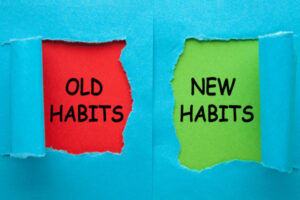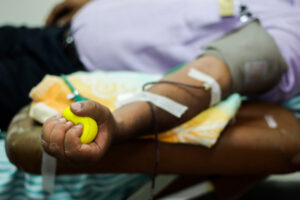
The internet is full of warnings about things that cause cancer. Watch out for antiperspirants, scented candles, and bras, dubious web sites or sensational posts on social media warn. Steer clear of disposable chopsticks, microwaves, radon gas, and more. Scary or misleading claims are so plentiful that it’s hard to know which ones to take seriously. "We’ve seen that a lot of people have unnecessary fears about things that might cause cancer, or they’re overly cautious about things that aren’t based on science," notes Timothy Rebbeck, a cancer researcher and the Vincent L. Gregory, Jr., Professor of Cancer Prevention at the Harvard T.H. Chan School of Public Health.
To cut through the confusion, Rebbeck and his colleagues have developed a free tool to help.
What is the Cancer FactFinder?
The Cancer FactFinder was developed jointly by experts at the Zhu Family Center for Global Cancer Prevention at Harvard T.H. Chan School of Public Health and the Center for Cancer Equity and Engagement at the Dana-Farber/Harvard Cancer Center. It offers reliable information about whether certain cancer claims are true. "It’s a place to go when you’ve heard something and you’re not sure what to make of it," Rebbeck says.
Log on to Cancer FactFinder and you can:
- Search cancer claims. Type in a particular term (such as "scented candles") or simply scroll through all of the claims the team has investigated. "We have about 70 right now. We’ll continue to update them and add more over time," Rebbeck says.
- Learn how claims are fact-checked. The Cancer FactFinder team uses expert opinion from leading scientists and health organizations, as well as scientific evidence from human studies. Note: animal studies are not considered. "It could be that cancer is induced in lab animals by feeding them a particular compound or rubbing it on them. That doesn’t mean it causes cancer in humans," Rebbeck says.
- Learn who’s on the Cancer FactFinder team. In addition to Rebbeck and his colleagues, there’s a mix of scientific experts and community advocates from groups including
- BayState Health
- Boston Cancer Support
- Boston University
- Men of Color Health Awareness
- Silent Spring Institute
- Yale University.
What can you look up?
Vetted claims on Cancer FactFinder range from A to almost Z — from an acidic diet to wax that’s sprayed onto fruit and vegetables.
Each listing gives you an immediate idea if there’s something to the claim, based on the balance of evidence in humans. A green checkmark means the claim is most likely true. A red X means the claim is probably false. A question mark indicates that there isn’t enough evidence yet to determine if there’s a cancer link. You’ll learn what the science says, how to reduce risk for a particular cancer, and where you can get additional trustworthy information on a topic.
A cancer fact-check in action
Let’s say, for instance, that you plan to join friends on a hike through a park, and you stop by the store for bug spray to ward off mosquitoes and ticks, which you know can cause illnesses like West Nile disease and Lyme disease. As you peruse the options, you remember someone mentioning that bug spray is linked to cancer.
Instead of worrying, you can go to Cancer FactFinder and type in "bug spray." You’ll see a red X signaling that bug spray hasn’t been found to cause cancer in humans. You’ll also see
- which chemicals have sparked bug spray concerns
- how to use bug spray properly
- how to avoid concerns about certain ingredients by using alternative repellents.
Or say you just want to educate yourself about various cancer claims. Remember the ones mentioned so far? Turns out that claims of cancer linked to bras, antiperspirants, disposable chopsticks, microwaves, acidic diets, and wax sprayed on fruits and vegetables are false. Claims of cancer from radon gas and the frequent use of scented candles are true.
The ultimate goal, Rebbeck says, is empowerment.
"We want everyone to start asking questions, learn how to get reliable information, think about what it means for them, and talk to their families and doctors about lifestyle choices. We’re hoping that’s the endpoint of this."



